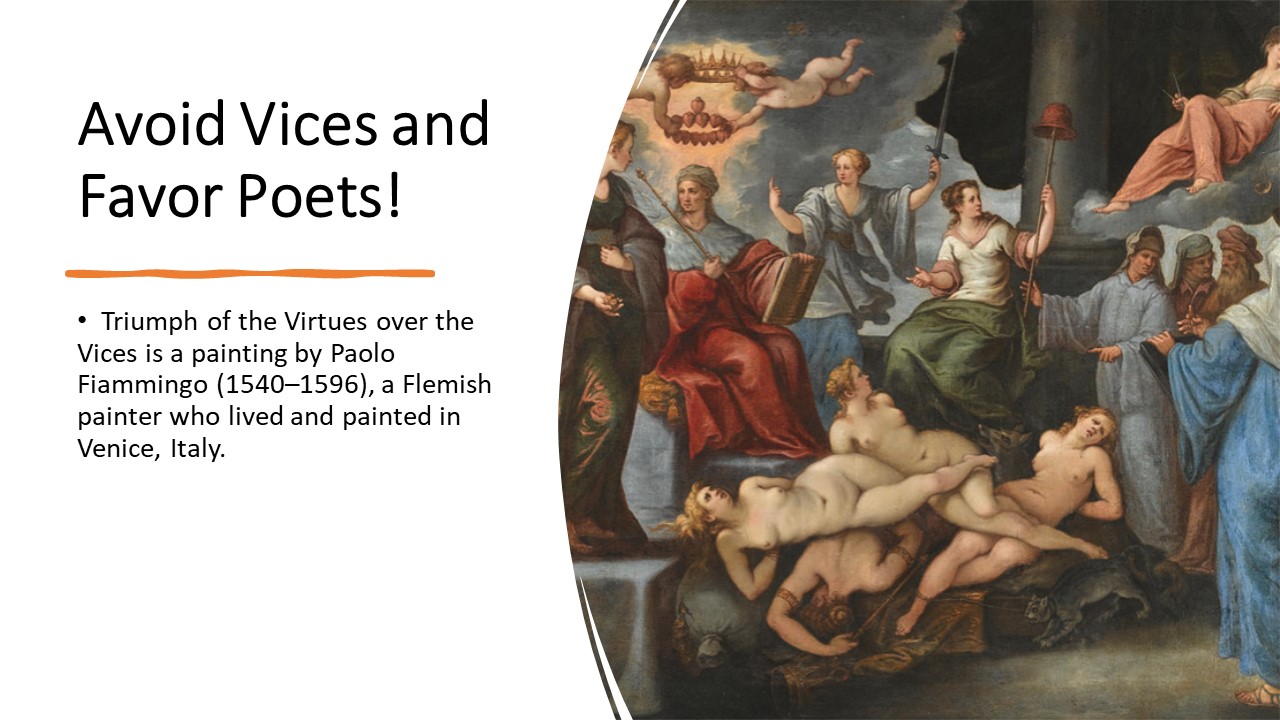The article includes practical quotes from Ovid’s “Ars Amatoria” advising women to avoid vices and favor poets while they consider matters of love.
Ovid was a notable Roman poet who lived between 43 BCE and 17 CE. His poetry trilogy “Ars Amatoria” (The Art of Love) has been a favorite among educated and aristocratic readers for centuries. Numerous humanities specialists of today have read and praised Ovid’s “The Art of Love.” In his poems, Ovid imparted many of his love recommendations to Roman men and women. He teaches them how to attract, entice, and keep a relationship with their lovers. He also teaches them about the art of love and how to apply it to their sexual relationships.
The Romans lived in a different era and had a different way of life than we do. I believe, however, that Ovid’s poetry can teach today’s educated men and women something interesting and useful about love. This is why I have excerpts from these books posted on this website for those interested in learning more about how ancient Romans lived and loved. Some of Ovid’s counsels are applicable to modern life, love, and relationships.
His poetry collection “Ars Amatoria” offers practical advice to modern men and women on how to find, attract, and keep a partner in a relationship. The first two books of Ovid’s poetry contain guidance for men on how to approach, court, and entice women. The third book uses poetic wisdom to teach women how to be attractive, lovable, and maintain loving relationships with the men they love.
I’ve previously shared some of Ovid’s poetry-based advice for men in previous blog posts. Among the topics covered in these lovely verses are the following: “how to find her“, “what is his task,” “how to search for love while at the theatre,” “at the races or circus,” and “around the dinner-table and on the beach.” Ovid also teaches a Roman man that “triumphs are good to attract a woman.” He instructs a man “how to win her“, “how to know her,” “how to be attentive to her“, “how to make promises and deceive,” “how to captivate a woman and “seduce her.” Ovid explains “how tears, kisses, and taking the lead help in love affairs”.
Besides, this blog’s articles include Ovid’s wisdom of love for women on “how to appear,” “how to keep taste and elegance in hair and dress,” “how to use makeup,” “how to hide defects in appearance,” “How to be modestly expressive,” and “how to beware of false lovers.”
Here are some new poetic quotations for girls and women from Book III of Ovid’s “Ars Amatoria.” Ovid instructs them on how to avoid vice and favor poets.
Here Is What Ovid Advises Women to Avoid the Vices and Favor the Poets
“If I might turn from lesser to greater things,
and spread the full expanse of swelling sail,
it’s important to banish looks of anger from your face:
bright peace suits human beings, anger the wild beast.
Anger swells the face: the veins darken with blood:
the eyes flash more savagely than the Gorgon’s.
‘Away with you, flute, you’re not worth all that,’
said Pallas when she saw her face in the water.
You too if you looked in the mirror in your anger,
that girl would scarcely know her own face.
Pride does no less harm to your looks:
love is attracted to friendly eyes.
We hate (believe the expert) extravagant disdain:
a silent face often sows the seeds of our dislike.
Glance at a glance, smile tenderly at a smile:
he nods, you too return the signal you received.
When he’s practised, so, the boy leaves the foils,
and takes his sharp arrows from his quiver.
We hate sad girls too: let Ajax choose Tecmessa:
a happy girl charms us cheerful people.
I’d never ask you, Andromache, or you, Tecmessa
while there’s another lover for me than you.
I find it hard to believe, though I’m forced to by your children,
that you ever slept with your husbands.
Do you suppose that gloomy wife ever said to Ajax:
‘Light of my life’: or the words that usually delight a man?
Who’ll prevent me using great examples for little things,
why should we be afraid of the leader’s name?
Our good leader trusts those commanders with a squad,
these with the cavalry, that man to guard the standard:
You too should judge what each of us is good for, and place each one in his proper role.”
Kline, A. S. (2001). Translation of Ovid’s Ars Amatoria: The Art of Love.
Then Ovid Continues His Verses…
“The rich give gifts: the lawyer appears as promised:
often he pleads a client’s case that must be heard:
We who make songs, can only send you songs:
we are the choir here best suited above all to love.
We can make beauties that please us widely known:
Nemesis has a name, and Cynthia has:
you’ll have heard of Lycoris from East to West:
and many ask who my Corinna is.
Add that guile is absent from the sacred poets,
and our art too fashions our characters.
Ambition and desire for possession don’t touch us:
the shady couch is cherished, the forum scorned.
But we’re easily caught, torn by powerful passions,
and we know too well how to love with perfect faith.
No doubt our minds are sweetened by gentle art,
and our natures are consistent with our studies.
Girls, be kind to the poets of Helicon:
there’s divinity in them, and they’re the Muses’ friends.
There’s a god in us, and our dealings are with the heavens:
this inspiration comes from ethereal heights.
It’s a sin to hope for gifts from the poet:
ah me! No girl’s afraid of that sin.
Still hide it, don’t look greedy at first sight: new love will balk when it sees the snare.”
Kline, A. S. (2001). Translation of Ovid’s Ars Amatoria: The Art of Love.
